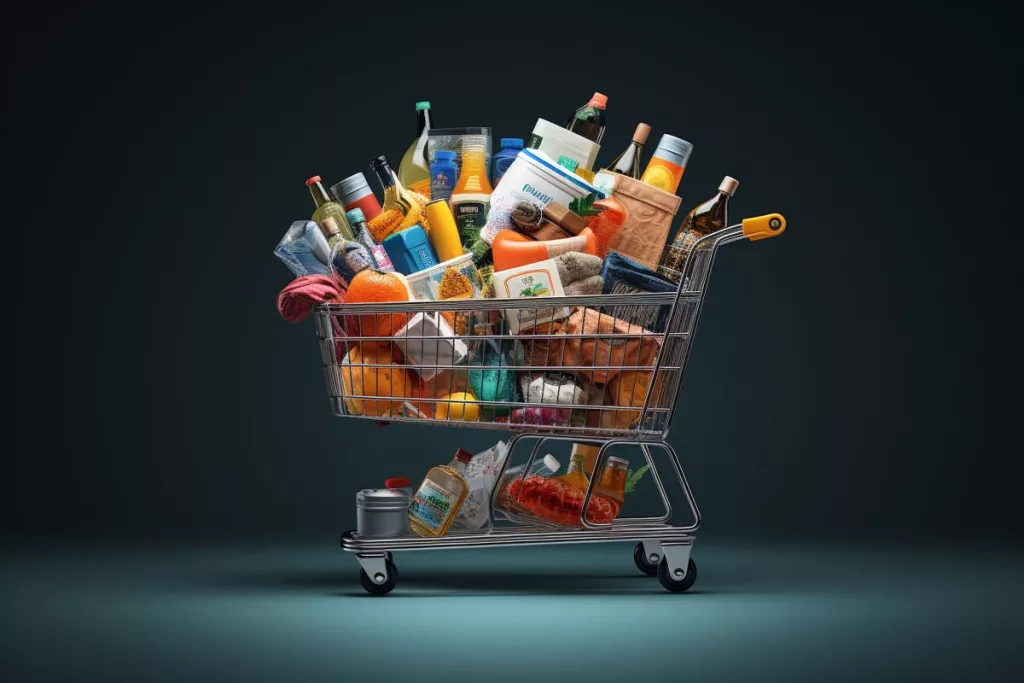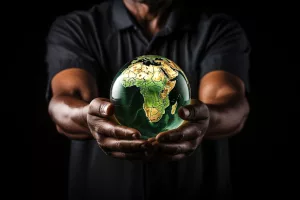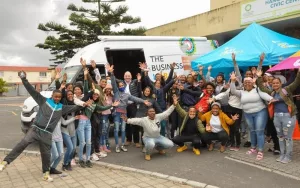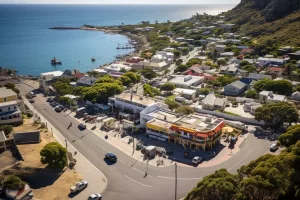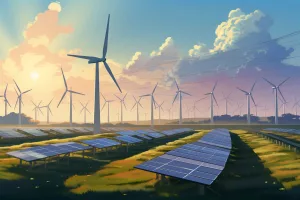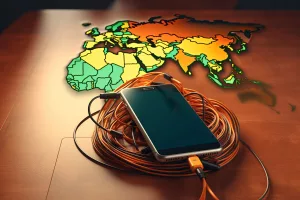The most important phrase in this passage is “it’s important to maintain financial prudence to avoid overspending and debt.” Nurturing Smart Consumer Habits During Festive Season: Tips for Financial Prudence
The South African Department of Tourism and the South African High Commission in Nairobi worked together to discuss ways to revitalize and increase regional tourism. They focused on rebuilding market share, improving visa facilitation, and boosting air connectivity. The diplomatic interaction aimed to strengthen existing bilateral agreements and involve the media in broadcasting information and facilitating dialogue. The collective effort shows the potential for a promising future in South African tourism.
South Africa’s National Energy Development Institute (SANEDI) recently hosted its first Energy Conference, aimed at addressing the country’s energy issues and socioeconomic concerns through sustainable energy solutions. The Integrated Resource Plan proposes a diverse energy blend to cater to the nation’s expected growth in electricity demand, including renewable and nonrenewable resources. The shift towards a lowcarbon future and the evaluation of the role of resources like coal, oil, and gas in the transition process is an essential discussion. Furthermore, the Upstream Petroleum Industry could create significant economic upliftment for the country, positioning it as a key player in oil and gas production and supply.
On November 22nd, 2023, an important event took place in South Africa’s transportation industry as delegates from the country’s transportation sector gathered at Kenilworth Station in Cape Town to reassess safety protocols. Led by Deputy Minister Lisa Mangcu, the inspection was an initiative to ensure passenger safety and service efficiency. The media’s involvement promoted transparency and accountability, and the event exemplified the government’s dedication to public service and public transport’s crucial role in citizens’ daily lives.
The Informal and Micro Enterprises Development Programme (IMEDP) is empowering small businesses in Tshwane, South Africa. Deputy Minister of Small Business Development, Ms. Dipuo Peters, distributed essential business equipment to over seventy small, medium, and micro enterprises at a momentous event at the TMPD headquarters. The IMEDP aims to improve the competitiveness and durability of informal and micro enterprises, particularly those owned by women, youth, and individuals with disabilities, and those operating in townships and rural regions of South Africa. This initiative is a stride towards a brighter and more inclusive economic future.
The South African government offers a comprehensive range of services, including parenting, health, education, relationships, employment, international travel, and services for foreign nationals. The Minister of Communications and Digital Technologies is leading the country’s shift towards effective communication and a robust technological infrastructure. Despite the postponement of a significant event, the government remains committed to its people, ensuring they are wellserved, informed, and active participants in the democratic process. The government’s commitment to transparency is evident in the wealth of public documents available.
Jobs Connect is an online platform in Cape Town that connects job seekers with potential employers. It offers training and learnership opportunities as well, with job listings that can be filtered by location. With almost 100,000 registered users, Jobs Connect is an innovative and costeffective solution to the challenge of unemployment in South Africa.
Cape Town is hosting a property auction in November 2023 to revitalize the economy and offer investors a unique opportunity. The auction includes a diverse range of properties for industrial, community, and residential development purposes, and covers over 100,000 square meters of land. The auction is not just about financial gain but supports economic recovery, job creation, and the delivery of municipal services. Interested investors can register online and place their bids, and detailed information about the properties is available on HighStreetAuctions.com.
Transforming Rietfontein: An Interdepartmental Approach to Sustainable Land Management
Rietfontein, a town in Northern Cape, South Africa, is undergoing a sustainable land management project. Departments of Forestry, Fisheries, and the Environment, and the Agriculture, Land Reform, and Rural Development are working together with funding from the Global Environment Facility. The project aims to address land degradation, climate change, water security, and unemployment while generating longterm benefits for the community. The initiative is a rallying cry for sustainable advancement and demonstrates the power of interdepartmental collaboration in addressing environmental challenges.
Deputy Minister of Small Business Development, Ms. Dipuo Peters, recently led an initiative to provide equipment to 90 deserving informal business proprietors, with a focus on women, the youth, and individuals with disabilities. This event symbolized inclusivity, bridging the economic gap and fostering selfreliance among the underserved. The event was part of the larger Informal and Micro Enterprises Development Programme (IMEDP) which serves as a glimmer of hope for numerous small enterprises that constitute the backbone of townships and rural regions across South Africa.
The digital era brings both opportunities and threats, especially in the world of cybersecurity. African nations are making progress in instituting policies and legislative environments to counter threats and cultivate an environment conducive to digital innovation. South Africa is particularly exposed to cyber threats due to extensive internet usage. Reinforcing resilience in developing countries demands fostering international cooperation, sharing resources, and offering technical assistance. The South African Department of Communications and Digital Technologies founded the Cybersecurity Hub to coordinate the cybersecurity sector in private and civil society.
The Labour Activation Programme (LAP) is a project established by the Department of Employment and Labour to reduce unemployment, poverty, and inequality in South Africa. Financed by the Unemployment Insurance Fund (UIF), LAP fosters job growth and enhances the employability of jobless individuals. By collaborating with various organizations, LAP maximizes its influence and reach. Upholding ethical governance and progressing in the right direction, LAP is an agent for change, a platform for empowerment, and a symbol of hope for a wealthier, more prosperous South Africa.
South Africa has accepted S&P’s ratings of ‘BB’ and ‘BB’ as an opportunity for growth. The government is prioritizing key sectors such as electricity and logistics and aims to improve infrastructure delivery and efficiency. They are also utilizing digital communication to engage with citizens and provide transparency in government dealings. The government’s commitment to betterment and a prosperous future for all South Africans shines through in their response to these ratings.
The Unemployment Insurance Fund (UIF) has made efforts to simplify the process for former teacher assistants in the Limpopo Province to claim their due benefits. The UIF deployed a specialized team to facilitate claims and applied its “Taking Services to the People” initiative to make services accessible closer to people’s homes. The initiative is part of a broader effort to improve employment opportunities for the country’s youth, underscoring the combined efforts made to tackle youth unemployment.
George Municipality in South Africa is leading the way in energy sustainability through initiatives such as a 9 MW solar power plant, solar power in municipal buildings, demandside management, and aiming for energy independence through selfgeneration and power from independent power producers. The municipality’s commitment to renewable energy is setting an example for other municipalities and the nation as a whole. They are taking practical steps to address the energy predicament, including energyconserving lighting, LED updates for public areas, and deploying ripple control systems to operate numerous geysers. George Municipality is striving towards a more sustainable future, and their journey is a source of motivation for others.
In 2023, the vibrant city of Cape Town played host to the annual gathering known as the Africa Tech Festival. This grand event drew the attention of visionaries, entrepreneurs, policymakers, and investors, all united by their commitment to driving the digital revolution in Africa. The festival, in association with South Africa’s Department of Communications and Digital Technologies, provided an excellent platform for generating innovative ideas and forming beneficial alliances.

